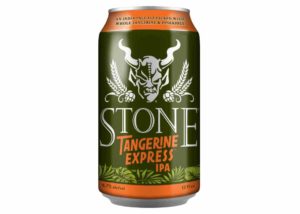
Even though simply using your trademark automatically establishes your rights in the geographic area where you use it or may naturally expand, you can obtain valuable additional rights by applying to register the mark in the U.S. Patent and Trademark (USPTO). The financial and other benefits of registering your beer trademarks can be significantly greater than the cost.
Financing. Most investors and lenders will recognize the asset value of a trademark only if it has been federally registered in the U.S. Patent and Trademark Office. This increase on asset value can greatly increase the amount they are willing to provide to you.
Licensing. Issuing merchandise licenses can promote your brand and bring in royalty income. However, most licensees will require that the trademark be registered before they will invest in product production.
Expansion. You need to have registered your mark to protect your ability to extend the sale of your product into new areas of the U.S. and to have the right to force another brewer to cease using a confusingly similar trademark there. Otherwise, the other brewer may be able to keep you from expanding into that area.
Reduced legal fees. Your federal trademark registration provides some technical advantages that may cut your legal costs. These include:
In addition, by registering your mark, you will put others on notice of your rights so they will hopefully avoid selecting a mark that is confusingly similar to yours.
The Registration Process
The USPTO will examine your trademark application, so you have to select your mark carefully. Registration may be refused if your mark:
It takes 12 months or longer to federally register a mark.. The registration will continue as long as you use your mark, but proof of continued use must be filed with the USPTO in the fifth year of registration and every 10th year of registration.
Policing

Registration can give you strong rights, but if you do not act against possible infringers, it can make it more difficult to enforce your rights.
For example, Stone Brewing has brought an infringement action in California against Molson Coors claiming that the Coors Keystone
beer cans and advertising were redesigned to play up the Stone nickname and will mislead Stone Brewing’s customers.
Molson Coors has denied these claims, has claimed that its Keystone beer has been known and promoted as “Stone” for years, has asserted that Stone Brewing mischaracterized the redesigned keystone can, and has asked for a judgment in its favor.

In general, you or your lawyer should assert a claim whenever you think another brewer has adopted a confusingly similar wordmark or design that is likely to cause confusion as to the source of its products or services. This claim may result in a sufficient change. If not, both brewers may agree to mediation or arbitration. If all else fails, litigation may be needed.
By registering and policing your trademarks, you can maintain strong rights and stop others from siphoning-off the goodwill associated with your marks.